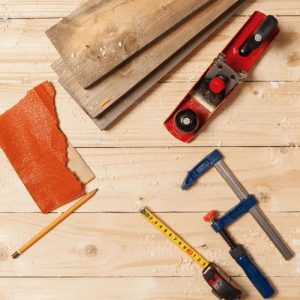Keeping Sharp
We all know that cognitive abilities are some of the first things that show signs of aging. Slight bits of forgetfulness, cloudiness of thought, or general confusion could be signs of something more serious than aging, and if you suspect that, the first step would be to get a doctor’s opinion. Whether or not there is a more serious problem, though, there are certain activities that can slow down mental deterioration. The following activities are simple enough for anyone to do, will help people of all ages, and will not interfere in any program that a doctor has set up for you.
Ways to Stay Sharp
One of the very first things that can help combat mental lethargy is conversation. This may seem like an obvious strategy, but many people are surprised by how few conversations are had by those who are becoming more home-bound with age. Things that used to be common, such as a conversation with a gas station attendant, asking directions to a new location & getting help to find a needed item at the grocery store, become rare occasions as mobility & transportation opportunities decrease.
This time period in life can also become discouraging if many of our peers are passing away & we can no longer correspond with them by phone or letter. Conversations with those of us who are still here & who care can make a huge impact on their day to day lives.
Questions & Hobbies are Healthy

Find ways to ask questions that will stimulate their brains. Ask for advice on a certain problem you face (we can all keep learning, & their input may prove invaluable). Ask for their opinion about current situations in our communities, country & world. Ask if they can remember the components of a favorite recipe or how to fix a particular kind of household problem. You’ll find it will most likely benefit both of you.
Another easily managed activity is to engage in a well-loved hobby, or perhaps even learning a new hobby/skill. Sewing & quilting can be helpful at keeping mental agility. There may need to be modifications made (magnifying glasses, needles threaded in advance, etc) but it is worth it for the amount of pleasure we’ll gain & from the mental benefits we’ll receive. Woodworking, painting, gardening, animal care, weaving, and furniture repair could be other options. If the outcome of the hobby/skill benefits another person, or our community, it’s even better as it gives a stronger sense of purpose.
Change It Up
An incredibly simple step to take to promote mental acuity is to change the daily schedule slightly. Routine is important to all of us, but sameness & monotony can make it difficult to distinguish one day from another. A slight change from day to day can help keep mental faculties sharp & also give something to look forward to & look back upon with joy.
Games & Puzzles

Finally, remember to schedule in time for games and puzzles. Crossword puzzles that include current events are helpful to keep us engaged in the world around us. Games scheduled with family, neighbors or friends can pass the time, keep us active mentally & help us engage socially. Chess, checkers, & card games are simple enough to find, but also consider newer games in which you may have to learn new rules in order to play. You may just find a new favorite to share with friends!


1 comment